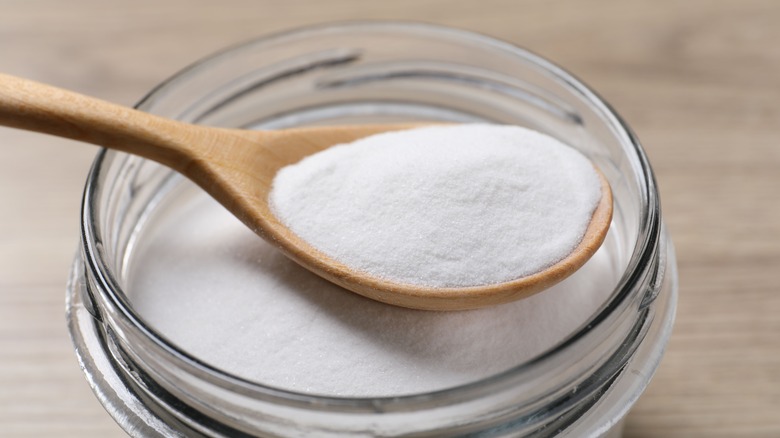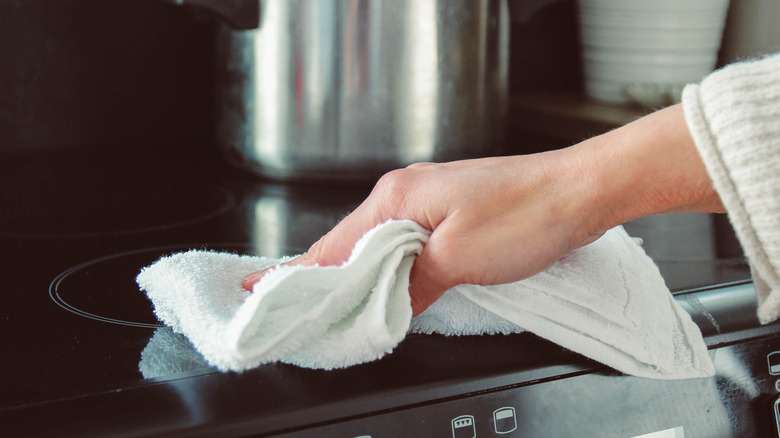Think Twice Before Cleaning Your Ceramic Stovetop With Baking Soda
If you've got charred food and other grime stuck on your ceramic stovetop, a common piece of advice is to clean it with baking soda. The exact cleaning method varies depending on who you ask: Some sources suggest just mixing it with water, making a paste that you spread on the stovetop before scrubbing it. Others suggest using soapy water or even hydrogen peroxide, and a good number recommend using a mixture of baking soda and vinegar to create a fizzy chemical reaction that loosens up that gunk.
However, you may want to consider skipping baking soda altogether. It's a mildly abrasive chemical, so you run the risk of scratching your cooktop. The scratches may not be immediately evident, as they can be very small, but they can become a problem after repeated cleaning. Dirt could also eventually get lodged in those scratches, making future cleaning even tougher. These surfaces are generally more delicate than metal cooktops (for example, with burners or coils) on which baking soda may not necessarily cause problems. For the same reasons, it's also advised not to use baking soda to clean other glass surfaces as well as quartz, marble, or aluminum — so you should reconsider this cleaning method if you happen to have that kind of countertop in your kitchen. Again, the damage will show up over time, so just because you've cleaned these surfaces once with baking soda, that doesn't mean it's ideal to keep on doing it.
There may be ways to clean with baking soda
Although it may generally be better to avoid cleaning your ceramic stovetop with baking soda, it should be noted that there are some nuances to this cleaning method. For example, baking soda won't cause abrasions if you're just applying it to the cooktop and then cleaning it off without scrubbing. It's the scrubbing process that may cause those undesirable scratches. If baking soda is mixed with vinegar, it may be less likely to cause abrasions, as the solid powder will be dissolved in liquid. This is generally a good all-purpose cleaner, not just for your stove.
If you'd rather avoid baking soda entirely, there are plenty of alternatives. Regular dishwashing liquid and water certainly won't do any damage; The same goes for vinegar. (You may need to dilute it with water.) There are also specialty products for cleaning ceramic cooktops, although they might cost more. No matter which approach you choose, be gentle. If you scrub with items like scouring pads and steel wool, damage is far more likely.
While baking soda may be okay for your stovetop if used properly, it is advisable to look for other options. If you're unsure, check the manufacturer's instructions for the best way to clean that ceramic surface.

